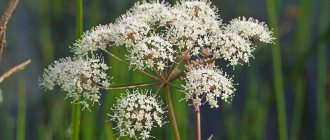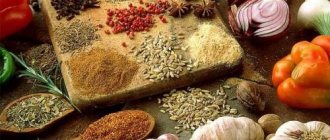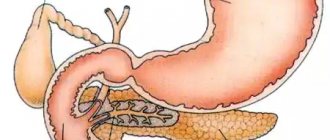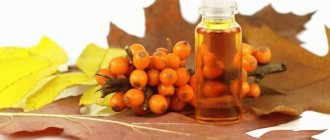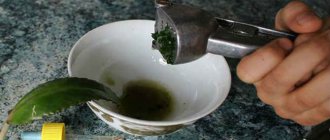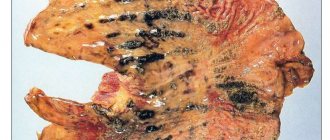The article was prepared by a specialist for informational purposes only. We urge you not to self-medicate. When the first symptoms appear, consult a doctor.
Herbal medicine is a powerful auxiliary method in the treatment of many diseases, and pancreatic pathologies are no exception. The time-tested effectiveness of many herbal infusions and herbal teas allows them to be successfully used to normalize the condition of the gland, overcome and prevent exacerbations and improve well-being.
What teas can you drink for inflammation?
To understand even possible tea for pancreatitis , it is worth learning about the composition of the drink, its pharmacological characteristics and the effect on the pancreas.
A drink made from tea leaves contains a complex combination of beneficial substances, which mainly have a beneficial effect on various body systems. During the research, experts discovered about 300 different chemical compounds in tea, some of which still remain incompletely studied. The most well-known groups of components are:
- tannins, especially tannin, which gives tea a tart taste and acts as an antioxidant on the body;
- vitamins - most of all in tea is vitamin P, which can stabilize cell membranes and strengthen the walls of blood vessels, vitamins C and group B;
- biological pigments (coloring substances) that provide the color range of tea and are involved in many vital processes of the body;
- amino acids and proteins that have a beneficial effect on carbohydrate, fat and other types of metabolism;
- alkaloids, the most important of which is tea caffeine - theine, which has a tonic effect on the nervous system;
- essential oils, which affect the taste of the drink, give it a characteristic aroma, and have a calming effect on the body.
Due to the presence of acids (ascorbic acid, amino acids) in the tea leaf, tea for pancreatitis (inflammation of the pancreas) should not be brewed too steeply. The rest of the tea ingredients do not irritate the pancreas.
All teas are prepared from the leaves of one plant - the tea bush, but differ in the degree of processing and the type of finished drink:
- black - tea from brewing leaves is almost black in color, the finished drink is dark orange or brownish in color (the Chinese call it red tea), this color is obtained due to prolonged fermentation (oxidation) of the leaf;
- green – shades of this drink vary from light green to greenish-yellow; brewing leaves do not undergo long-term fermentation, therefore they retain their natural color;
- yellow - traditional Chinese elite tea, obtained from leaves with minimal processing;
- white - light or slightly yellowish raw materials are obtained from unopened tea buds (tips) and young leaves, which are fermented longer than for the green variety, so the finished drink has a rich yellow-green color.
White and yellow varieties are rare and expensive types of tea. There are other varieties, and there are drinks called teas only by the method of preparation - fruit and herbal.
Gastroenterologists do not give strict recommendations on what tea to drink for pancreatitis ; the main requirement is that the drink should not be strongly brewed or too hot.
Are folk remedies effective for pancreatic diseases?
Traditional medicine cannot be considered as an alternative to traditional therapy for any disease. However, traditional medicine often resorts to some traditional methods of treatment as an additional remedy. In pharmacies you can buy medicinal herbs in the form of dietary supplements (bioactive food additives) - herbal mixtures or teas for the pancreas.
Gastroenterologists often recommend that their patients undergo a course of herbal medicine. This is the best evidence that herbs are really effective in treating the pancreas, but they should be selected and prescribed by a doctor, not a “traditional healer.”
Traditional healers often offer rather contradictory recipes that do not meet the main requirement - the inflamed pancreas needs rest. Unlike “healers,” a medical specialist knows how to treat the pancreas with the help of medicinal plants so as not to cause its increased activity.
The use of herbs does not aim to cure the pancreas without drugs, but it will help:
- diversify the patient’s drinking diet;
- improve the function of the biliary tract and liver, the condition of which also determines the health of the pancreas;
- reduce side effects from drug therapy for pancreatitis;
- increase the body's defenses;
- prevent new exacerbations or development of complications, such as diabetes;
- reduce the duration of the treatment process as a whole.
Diseases of the pancreas Most of the herbs used in herbal mixtures grow everywhere; they can be collected and used at home in the form of traditional methods for treating the pancreas.
Black tea
The most popular tea in European countries, including Russia, is the black variety. It has a complex effect on the body - at the same time calming, tonic, and general strengthening. Many patients suffering from pancreatitis are worried about whether black tea contains a high concentration of caffeine, which is contraindicated for inflammation of the pancreas.
Experts note that the caffeine content in black tea is low, no more than 110 mg per cup of drink. In addition, the caffeine contained in tea has a very gentle effect on blood vessels; it does not accumulate, but is quickly eliminated from the body. They try to attribute various harmful effects on the body to black tea, but none of them have been scientifically confirmed:
- tea does not have a depressing effect on intestinal motility and does not lead to constipation;
- does not contain narcotic substances, and the content of caffeine, which can cause some addiction, is insignificant;
- does not cause blurred vision, dizziness, nervous attacks, physical weakness, urinary incontinence, insomnia;
- does not worsen complexion or roughen the skin.
No studies have confirmed prejudice against black tea; on the contrary, people who regularly drink this drink are characterized by good health and physical fitness. Therefore, black tea can be recommended to people suffering from pancreatitis, especially if the drink is brewed according to dietary recommendations. This means that it should be of low saturation.
How to make black tea for pancreatitis
To prepare weak black tea, you need:
- Pour 1 teaspoon of dry tea leaves into a teapot, previously scalded with boiling water.
- Pour in 200 ml of boiled water at a temperature of about 90 degrees.
- Cover the kettle with a lid and wrap it in a dry towel.
- Leave for 10-15 minutes.
- Pour the tea leaves into a glass (about a third of the volume).
- Top up with boiled water.
Weak black tea does not pose a threat to the pancreas; on the contrary, it quenches thirst, replenishes water and electrolyte balance, tones, improves overall well-being and mood, which is important in the treatment of pancreatitis.
For tea to be truly beneficial, it must be drunk only fresh. Brewing the drink for future use is not allowed - there are practically no useful substances left in yesterday's brew, and some of them, on the contrary, turn into harmful components in the process of chemical reactions. Therefore, tea ceremony experts recommend drinking tea no longer than 1-1.5 hours after brewing.
Green tea
The caffeine content of green tea is only 8-36 mg per cup of traditionally brewed drink. Traditionally this means 1 teaspoon for each cup of tea, plus 1 more spoon for the teapot. For pancreatitis, this brew is too steep. To prepare a weak drink, you can use the recipe given above.
Just as in the case of black tea, a drink made from green tea leaves should only be drunk freshly brewed, that is, within 1-1.5 hours after brewing. Many varieties of green tea are sensitive to temperature conditions, for example, they lose their beneficial properties when brewed with boiling water and, moreover, cannot tolerate boiling. Tea prepared in violation of technology can be not only unhealthy, but also dangerous.
Teas made from counterfeit raw materials (surrogates) also pose a health hazard. For pancreatitis , it is advisable to drink only natural green tea; it should not contain synthetic flavor and aroma enhancers, dyes and other unhealthy food additives.
When storing tea, you need to make sure that it is in a tightly closed container and is not adjacent to intensely smelling products or household chemicals. Dry tea leaves easily absorb vapors of foreign substances from the surrounding air, so if stored improperly, they can lose both their original aroma and beneficial properties.
If you have pancreatitis, it is very important not to consume foods that can cause enzymatic activity of the pancreas, so you should not add sugar, jam or lemon to tea (both green and black).
At the same time, you can drink tea with milk for pancreatitis , if it is not whole milk. It should be remembered that adding milk to tea leads to the loss of a number of beneficial properties of the drink:
- the level of antioxidants and, as a result, the anticancer activity of tea decreases;
- the positive effect on the cardiovascular system is lost;
- The tonic effect is also lost, because calcium present in milk binds approximately 40% of caffeine.
As for the gastrointestinal tract, tea with milk for pancreatitis and other digestive diseases, especially in remission, since it does not have a harmful effect on the pancreas.
The same applies to honey - pancreatic enzymes do not participate in the breakdown of fructose, which is part of it, so the diseased organ remains alone. Tea with honey will help get rid of constipation, a common symptom of pancreatitis, strengthen the immune system, and maintain the bactericidal activity of the blood.
Popular herbalist recipes
Recipe 1. An effective infusion recipe is to take 2 tablespoons of a mixture of dried herbs St. John's wort, motherwort and peppermint - all in equal proportions, pour 500 ml of boiling water for 30-40 minutes. After this, strain the liquid through a sieve or gauze and take 150 ml 30-35 minutes before meals during the day.
Recipe 2. Most often, practicing herbalists recommend treating the pancreas with certain herbs for two weeks, after which it is useful to move on to using other herbal ingredients.
A recipe containing the following ingredients showed a good effect:
- elecampane rhizomes 2 parts;
- valerian roots 3 parts
- dill seeds 1 part
- violet flowers 1 part.
For one glass of boiling water, you need to take a tablespoon of this mixture, cook in a water bath for half an hour, and then leave for another 15 minutes. You need to take 3 tbsp every time before meals. l.
Recipe 3. For pancreatic cancer, folk healers advise taking an infusion of red elderberry flowers, for the preparation of which 1 tbsp. l. raw materials need to be filled with 200 ml of hot water for 2 hours. Drink a third of a glass three times a day between meals in combination with birch bud tincture.
Recipe 4. For the treatment of chronic pancreatitis with decreased secretion, herbs containing bitter essential oils are used, which expel bile that has stagnated in the organ.
Such plants include:
- yarrow (1.5 parts);
- marsh cudweed (1 part);
- medicinal marigolds, or calendula (1 part);
- peppermint (2 parts);
To prepare the infusion, pour two tablespoons of a mixture of these herbs into 400 ml of boiling water, then boil in a water bath for 15 minutes. After removing the container with the broth from the heat, let it brew for about an hour and strain. You need to take the medicine in two doses, half an hour before breakfast and before lunch. The recommended course of treatment with this infusion is 2 months.
Replacement herbal medicine should be used during periods of remission of the disease between outbreaks of exacerbation. At this time, the pancreas is not very painful and not swollen. taking herbs helps prevent the development of exacerbations or reduce the frequency of their occurrence.
Along with taking infusions and decoctions for the treatment of pancreatitis, it is necessary to pay attention to other ailments of the digestive system and also treat them. Such problems include heartburn, dyspepsia, gallbladder and liver pathologies, gastritis and stomach ulcers. In cases where pancreatitis is accompanied by diabetes, you should take herbs that normalize blood glucose levels, for example, the roots of agrimony, elecampane and dandelion, and blueberry leaves.
The following recipes are also effective for restoring the pancreas:
- 2 tbsp. l. pour 500 ml of boiling water over bitter wormwood and leave in a thermos for an hour. Take half a glass of infusion half an hour before each meal.
- 1 tbsp. l. Brew dried plantain leaves with a glass of hot water, leave for about an hour and drink this amount throughout the day.
- 2 tsp. pour 300 ml of hot water over alfalfa, strain after half an hour and take the infusion in small sips throughout the day.
The effectiveness of a particular herbal remedy for the treatment of the pancreas is manifested in the normalization of stool, the disappearance of bloating and flatulence, a decrease in pain intensity and an increase in appetite.
Herbal teas
Herbal tea for pancreatitis is a useful source of the fluid the body needs . Pancreatic herbal teas can be bought at a pharmacy (Golden Altai series), or you can brew it yourself, knowing what herbs are needed to prepare the drink. There are several dozen herbs that directly or indirectly improve the condition of the pancreas. Herbal teas can be made from one ingredient or from a collection, combining the ingredients in equal parts.
The most accessible herbs for preparing herbal tea for pancreatitis are those growing in mid-latitudes:
- Centaury umbelliferum – has antimicrobial and mild laxative properties, regulates appetite and stimulates digestion;
- corn silk - exhibits choleretic, diuretic, hemostatic effects;
- Ivan tea - exhibits a sedative (calming), wound healing and mild hypnotic effect;
- peppermint – soothes, reduces nausea and bloating, improves appetite, acts as an antispasmodic;
- calendula officinalis – has a pronounced antibacterial, anti-inflammatory, disinfectant and wound-healing ability;
- tansy – exhibits a choleretic effect, stimulates appetite and digestion, and gives a laxative effect;
- sandy immortelle - used as a choleretic, antibacterial, antispasmodic and antiemetic;
- Great plantain – known for wound-healing, hemostatic and anti-inflammatory properties;
- horsetail – a wide range of actions: wound healing, astringent, hemostatic, anti-inflammatory, tonic;
- St. John's wort – exhibits astringent, antiseptic, anti-inflammatory effects;
- knotweed – has wound-healing, antioxidant, regenerating (restorative) properties.
Medicinal herbal teas often contain string, motherwort, yarrow, chamomile, nettle, and sage.
Non-herbaceous medicinal plants are also used in tea for the treatment of pancreatitis - birch buds, oak bark, hawthorn and rose hips. monastery tea recipes . There are several varieties of them and they all affect the body in many ways, supporting not only the pancreas, but also other organs, and the tone of the body as a whole.
what tea can you drink for pancreatitis?
Major diseases
The pancreas is an endocrine organ that produces glycogen, insulin and pancreatic juice. The first is a reserve nutrient for the body. It represents a kind of energy reserve that is used by the body when necessary, for example, during prolonged physical activity. Insulin plays a major role in carbohydrate metabolism, reducing the concentration of glucose in the blood. Pancreatic juice is directly involved in the digestion of proteins, fats and starchy compounds.
A disruption in the production of hormones and enzymes by the pancreas or a functional change in the cells or tissues of an organ becomes the impetus for the development of certain diseases, which include:
- pancreatitis (acute and chronic);
- diabetes;
- cancer;
- cyst;
- cystic fibrosis;
- pancreatic necrosis.
The most common disease is chronic pancreatitis.
There are many plants that have a beneficial effect on the condition of the pancreas and help normalize its functioning. Herbal treatment can be considered as an effective addition to taking medications prescribed by a doctor and diet. Herbal medicine helps relieve pain during exacerbations of pancreatitis, eliminate swelling of the diseased organ and reduce inflammation.
Tea for acute and chronic pancreatitis
Despite the beneficial effect of tea on the body, the drink is not equally useful for different forms of pancreatitis. In the acute form, which occurs in a mild form, strict diet therapy is indicated, the patient is prescribed therapeutic fasting. During this time, only drinking is allowed, and drinks must meet strict requirements:
- be neutral in taste (this can be drinking or alkaline mineral water without carbon, a weak rosehip decoction or not steeply brewed tea);
- not be cold or too hot (recommended temperature of drinks is no more than 60 degrees);
- be strictly natural (the presence of dyes, aromatic and flavoring additives in drinks is unacceptable).
Tea prepared according to the above recipe, without sugar, without lemon and any other irritating additives, meets all these requirements. In case of acute pancreatitis, it is allowed to drink 1.5-2 liters of liquid per day, half of this amount can be tea.
In case of chronic pancreatitis in the remission phase, tea can be drunk with a slightly stronger brew, but again not hot, without chemical or acid-containing additives. Instead of sugar, you can add dry stevia, xylitol or sorbitol. Honey and milk are allowed as additives. In the phase of exacerbation of chronic pancreatitis, the requirements for tea are the same as for acute inflammation. The daily volume of tea consumed for pancreatitis can be up to 1 liter.
Contraindications to the use of herbs
Decoctions and infusions of medicinal herbs and plants, as a rule, have fewer side effects than artificially synthesized pharmaceuticals. However, they also have certain contraindications.
Before starting a course that includes auxiliary products of plant origin, you should make sure that there are no allergies or individual intolerance to individual components of the herbal collection.
Herbal remedies are contraindicated during periods of exacerbation of cholecystitis or pancreatitis, with severe gastrointestinal lesions, during pregnancy, lactation and with unstable blood pressure.
Recommended video:


